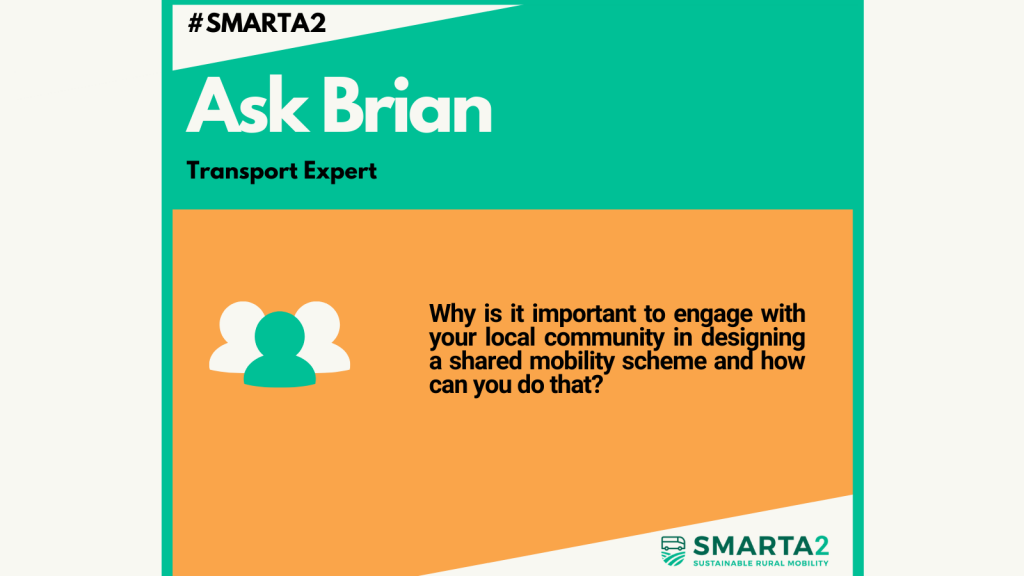
Ask Brian: Why Is it Important To Engage With Your Local Community in Designing a Shared Mobility Scheme and How Can You Do That?

Spotlight on Agueda, Portugal:
· Ãgueda’s e-bike sharing system
Why did they choose e-bike sharing? What process brought them to this conclusion?
Firstly, Agueda embarked on a consultation process with local communities in the rural areas surrounding Agueda. This involved stakeholder meetings, interviews with community groups, politicians, schools, railway company etc. It is important that everyone feels involved in the process of change from the beginning. Also, this approach helps break down barriers and encourage people to share, leading to development of multi-stakeholder business models to sustain long term viability of all public transport solutions in the area. Everybody feels part of the process from the planning stage right through the delivery of the service. This is essential. It may sound complicated, but it is not. Unless you engage with local communities, you will not be successful. Local communities have to feel part of the process because they are the ones who are going to be using the service. If you try to bring a solution that has been successful in one area to another, without understanding local needs the odds to be successful are against you. What works in one country will not necessarily work in another and vice-versa: the geographical, social and cultural contexts in each rural area is different. That does not mean that you cannot get ideas from other places. Quite the contrary. Drawing from the experiences of other places you can understand processes that can help you develop your solutions. However, for those solutions, you need to work with your local community. But how can you best do that? See the two cases in the spotlight:
- Ãgueda’s e-bike sharing system
In Ãgueda, families living in rural areas typically drive their children to the city centre for schooling, and then pick them up once they finish working. However, children finish school earlier than their parents finish working, and therefore often must stay in the city and wait for them. To solve this puzzle and help children and their parents become more independent, Ãgueda, in the context of SMARTA 2, brought together its local community: students, parents, staff from the mobility and transport department of the municipality came together in a workshop to find a solution to this issue.
Through a collaborative process, students, parents, and staff decided that ebikes could be the solution for their challenge. Ebikes would provide a valuable link from homes to local railway stations connecting with rail services to Agueda. In this way, students in Ãgueda region can now travel via e-bikes to their nearest train station, arrive at the city centre, then hop-on another bike, and go to their schools. At the same time, bikes are available for the whole community between school times, when demand from students drops. In this way, the municipality makes the best use of e-bikes. In addition, using data, the municipality can monitor demand and proceed to make further changes in the e-bike stations in the future as well as ask users for their feedback. The case of Ãgueda illustrates how engaging with the local community and using data can help develop solutions that are cost-effective and sensitive to the local context. Also, and importantly, it shows that developing solutions always comes down to answering the following questions: what you need, where you need it, when you need it, and how it is going to be done.
Interested in the e-bike sharing system in Ãgueda and similar solutions that rural areas are applying?